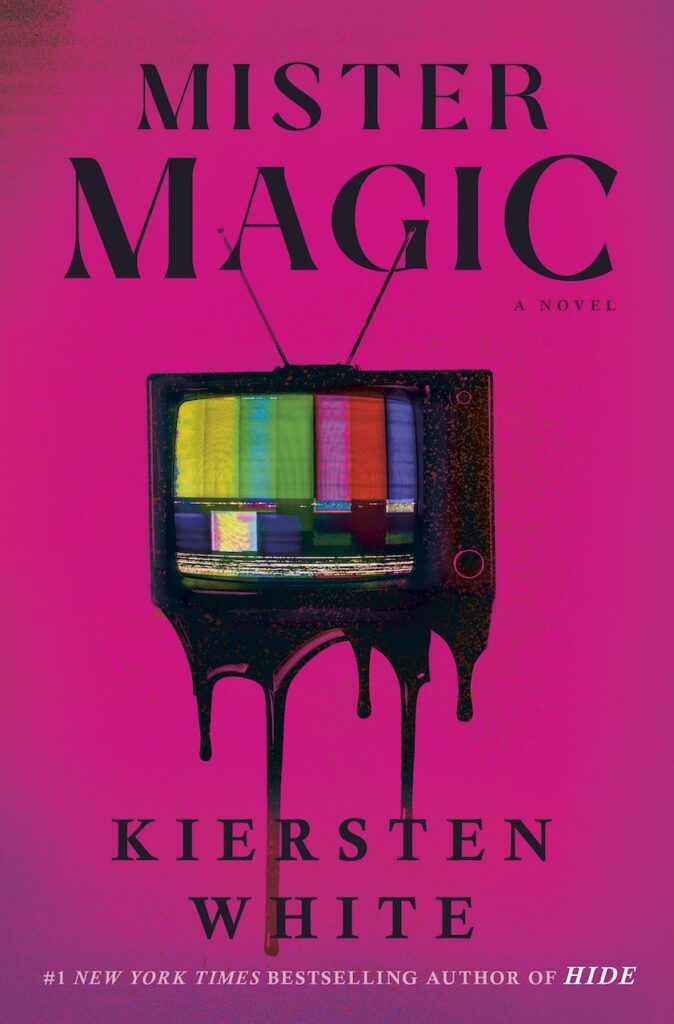“Mister Magic”
Kiersten White, Del Rey Books (2023)
304 pages, $28
If you are active on social media, regularly watch a news program or follow any sort of television program closely you might have had a so-called “parasocial relationship.” Parasocial relationships are a psychological phenomenon that develop when the fans of a public figure believe that they are genuine friends with the celebrity. Such relationships, and the way they affect us, form the basis for Kiersten White’s newest novel, “Mister Magic.”
The novel follows a group of adults who had previously starred in a ‘90s children’s television program synonymous with the book’s title. The program is shrouded in secrecy and mystery, however — no one can find old recordings of the program, especially of the final episode, and the series is not streaming anywhere. Edits made to Wikipedia about the show disappear without comment. Online discussion boards have thread after thread of comments where adults who grew up in the ‘90s watching “Mister Magic” share their conspiracy theories about it all and reminisce on how the show influenced them on virtues and manners.
The child stars of the series are called “The Circle,” which is short for “The Circle of Friends.” While the novel’s narration primarily follows one of the stars, Val, the chapters are broken up with fictional articles, Reddit forums, and social media posts from former fans of the program trying to understand what happened to The Circle. In particular, the fans want to know why a show that was so formative for them, and gave them some of their first friends, went away so abruptly.
Five former members of The Circle are brought together for a podcast meant to explore their experience of being on the show and — for the sake of their fans — hopefully shed some light on its mysteriously unmemorable conclusion. But even The Circle has questions about why “Mister Magic” ended so suddenly and why, as child performers, they were treated so poorly by the show creators. The actors reveal how they were separated from their families and discuss their confusing relationship with the series’ host. They also marvel at how the obsessed fans seem to know them even better than they know themselves.
“Mister Magic” touches on a moral issue that is being increasingly brought into the public sphere as news outlets cover the end of Britney Spears’s conservatorship and the publication of memoirs such as “I’m Glad My Mom Died” by “iCarly” star Jennette McCurdy: the treatment and morality of using children for popular entertainment purposes. Often, child actors, musicians, and artists enter their profession at the initiative of their parents and without understanding the implications of their celebrity on the world, or how it will shape or distort their relationships and the overall trajectory of their lives. “Entertainment” is the only form of child labor that is widely accepted in the west.
This novel offers a timely opportunity for reflection and an examination of conscience regarding the real effects our entertainment tastes and habits have on the lives of the people who create the content we unthinkingly lap up. White’s prose is incredibly readable and creative within its narrative format, which makes the book something of a compulsive page turner.
While fictional, this “inside story” of a pop culture phenomenon has the potential to help readers grow in media literacy by developing a critical eye toward the often-exploitative origins of media content — a skill that is much needed in our current age, and very necessary for Christians who wish to engage modern culture.

